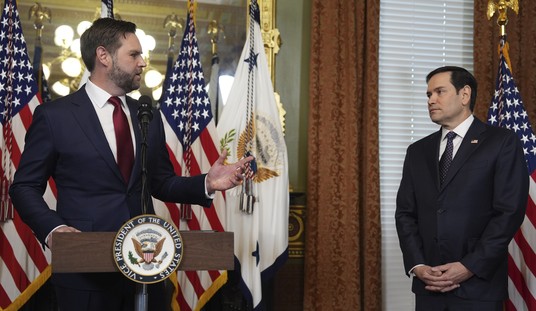Remember when we could trust Vladimir Putin to enforce the terms of the Iran deal being negotiated in Lausanne? John Kerry even cited Russia as an authority on the deal yesterday when challenged about the conflict between the description of the framework for continued negotiations:
US Secretary of State John Kerry said Sunday that if anyone doesn’t believe the information the Obama administration released on the Iran nuclear agreement, they could check with Russia.
“The Russians, who are not our usual allies, released a statement saying that what we have put out in terms of our information is both reliable and accurate,” Kerry said on CBS’s “Face the Nation.”
So much for reliable. Earlier today, Russia reneged on a ban that kept it from providing high-tech surface-to-air missile systems to Iran. The Russians canceled the sales of the S-300 system in 2010 under pressure from the UN to comply with sanctions against Iran for its pursuit of nuclear weapons. The fear at the time was that Iran would harden its defenses to keep the West from using air strikes to stop them from developing a nuke:
Russian President Vladimir Putin has signed a decree lifting the country’s ban on deliveries of high precision S-300 missile systems to Iran.
Russia imposed the ban and scrapped a contract for delivery of S-300s in 2010 under pressure from the West, after backing the last round of UN sanctions imposed on Tehran over nuclear activities the United States and other countries feared were aimed at developing atomic weapons. …
The Kremlin press service said on April 13 that the decree lifts prohibitions on the transport and delivery of S-300 systems from Russia to Iran.
The move seems certain to infuriate Israel, which has strongly urged Russia not to provide Iran with the missiles.
It’s not just Israel that should be infuriated. In one of the first moves after the “reset button” from Hillary Clinton, Barack Obama agreed to cancel installations of missile-defense systems in Poland and the Czech Republic in late 2009 (on the 70th anniversary of the Soviet invasion of Poland, no less). Vladimir Putin had demanded an end to the program, arguing that it would destabilize eastern Europe. Guess what other capability the S-300 has, according to Arutz Sheva?
The Commander of Iran’s Air Defense Forces, Farzad Ismail, said in early 2014 that the missile “Bawer” (Faith) made in Iran, has reached the operational phase of development, and that it features more advanced capabilities than the S-300 Russian-made missile.
The S-300 is a long range surface-to-air missile – manufactured by the Russian firm Almaz – designed to intercept aircraft and cruise missiles, and its most advanced models can also target ballistic missiles.
Not only will this give Iran a chance to harden its defenses around its nuclear sites, it also will give it an umbrella in case of reprisals for missile attacks on its neighbors. That’s what Obama gave away in 2009, only to watch Putin put it in place to protect the mullahs who are the biggest state sponsors of terrorism in the world.
Smart power.







Join the conversation as a VIP Member